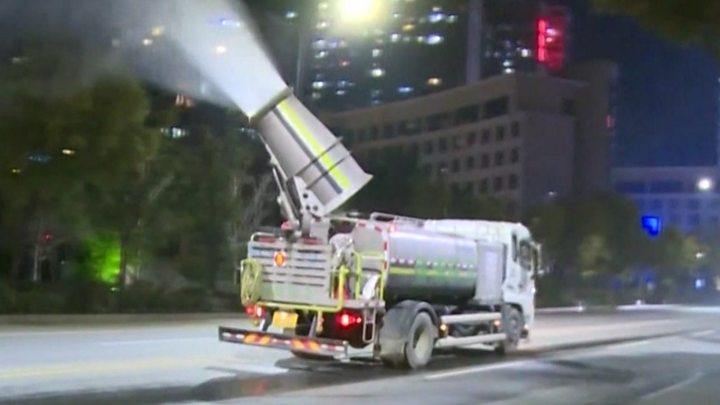
The acting White House chief of staff says US media is stoking a coronavirus panic because they hope it will take down President Donald Trump.
"The reason they are paying so much attention to it today is that they think this is going to bring down the president," Mick Mulvaney said.
Speaking to a group of conservatives on Friday, he added people should ignore the media in order to calm the markets.
Global markets have continued to fall as the virus infects over 50 countries.
There have been 82,000 reported cases of Covid-19 worldwide and 2,800 deaths since the disease emerged late last year. All but 3,664 cases and 57 of the deaths have been reported in China.
The number of Americans infected with with virus stands at 60.
What is Mr Mulvaney's argument?
"We took extraordinary steps four or five weeks ago," Mr Mulvaney said, referring to the Trump administration order to close the border to foreign travelers coming from China, where the virus originated. The move was widely covered in the media at the time.
"Why didn't we hear about it? What was going on four or five weeks ago? Impeachment. And that's all the press wanted to talk about," he told a gathering of conservatives outside Washington on Friday.
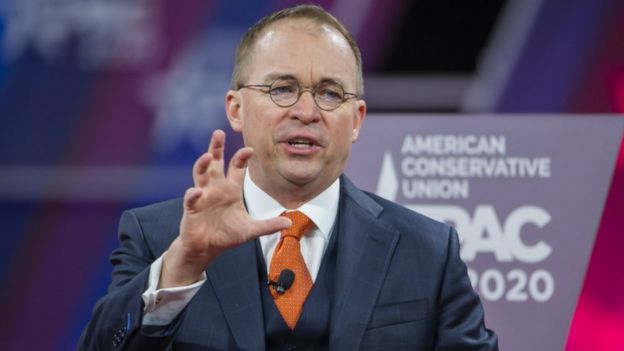 EPA
EPA
He said the press was preoccupied by the impeachment of Mr Trump - who was eventually acquitted - because of their belief that "it would bring down the president".
That same belief in Mr Trump's demise has fuelled coverage of the disease, Mr Mulvaney said.
How is the US handling the outbreak?
Mr Mulvaney's comments came as the Trump administration came under scrutiny for its early handling of the crisis.
According to an anonymous whistleblower within the US Department of Health and Human Services (HHS), government workers that were deployed to help a flight of Americans evacuated from Wuhan were "not properly trained or equipped to operate in a public health emergency situation".
- Shares face worst week since global financial crisis
- How worried should US be over coronavirus?
- Russian media hint at US coronavirus conspiracy
The plane, which was chartered by the state department, arrived in California on 29 January.
The team of more than a dozen HHS workers had face-to-face contact with around 200 evacuees, but were allowed to come and go from the quarantine zone and were not given the same protective equipment as Centers for Disease Control and Prevention (CDC) workers who treated evacuees in "full gown, gloves and hazmat attire".
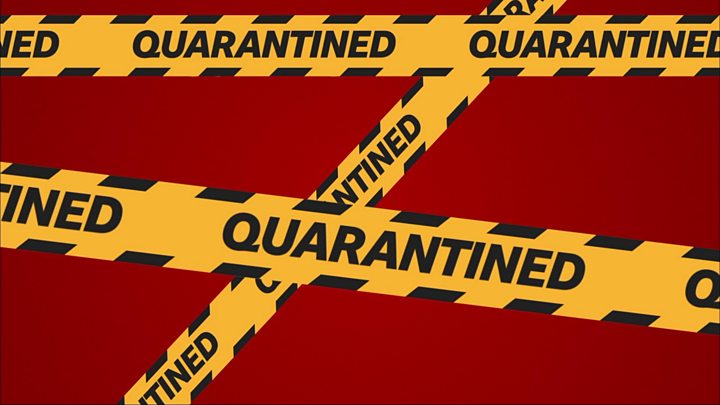
The complaint was made by a senior worker, according to whistleblower's lawyer. The lawyer is seeking federal whistleblower protection, arguing that his client has faced retaliation from superiors for reporting the concerns.
In testimony on Thursday, HHS Secretary Alex Azar said he was not "aware of any violation of quarantine or isolation protocols".
Cases are being tracked across the country, with thousands of people in mandatory or voluntary quarantine.
The New York health department has asked 700 people to self-isolate. California's governor said 8,400 people are being monitored by authorities and 33 have tested positive.


Blaming the media may backfire
When the Trump administration is under duress, its first instinct is to attack the media. That shouldn't come as a huge surprise, given that public trust and support of the press as a whole has declined steadily over the years.
So as the stock market plummets and concerns grow over the economic impact of the coronavirus, Mick Mulvaney turned to the usual suspects when assigning blame.
The risk for Mulvaney, the president and the rest of the administration, however, is that if the virus does end up becoming a serious problem in the US, their current attempts to shrug off the risks it presents could be particularly damaging.
George W Bush's response to Hurricane Katrina - the sine qua non of tone-deaf political responses to national crises - wouldn't have been nearly as devastating if it hadn't been for his "heckuva job" early praise for those handling the matter.
The coronavirus may not end up being the monumental threat some have predicted. It wouldn't be the first time breathless predictions turned out to be overblown. The consequences of treating the outbreak as a political, not a public health, threat, however, could be tragically high.
Which countries have been hit worst?
China is still seeing the huge majority of confirmed cases, but they are beginning to climb in other countries that are thousands of miles away.
Iran and Italy have both seen surging numbers of infected patients.
Iran's official death toll stands at 34, but sources within the country's healthcare system tell BBC Persian that the count could be as high as 210. Iran has denied that it is withholding information about the number of dead and infected.
Seventeen people have died in Italy.
There have also been 13 deaths in South Korea and three deaths in Japan.
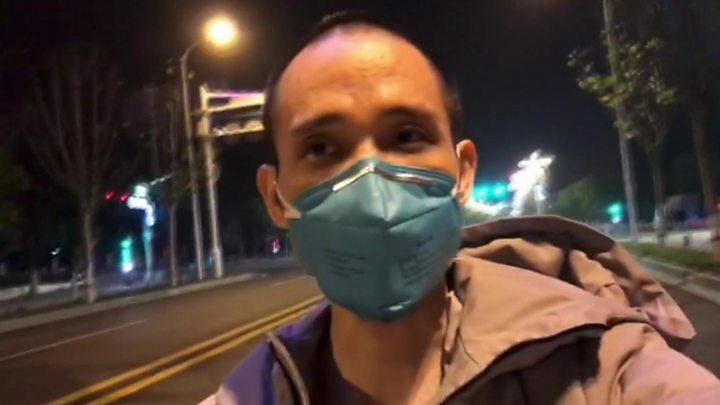
The World Health Organization director of health emergencies warned on Friday that the risk level was at highest possible level.
Dr Mike Ryan said it would be "unhelpful" to declare the outbreak a pandemic, because doing so is "essentially accepting that every human on the planet will be exposed to that virus.
"The data does not support that as yet," he said.

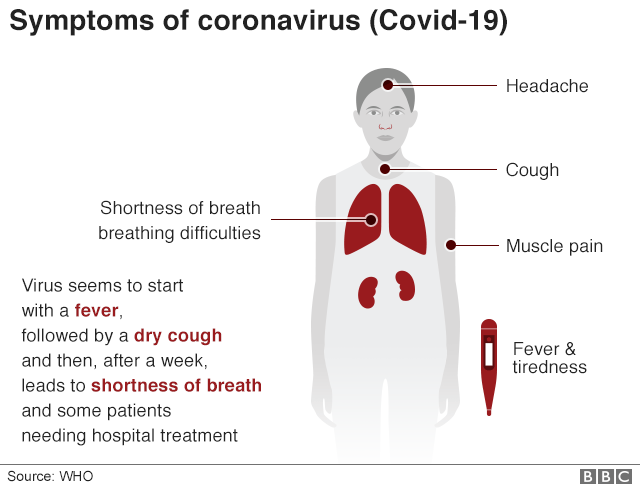
Have you been affected by the spread of coronavirus? You can get in touch by emailing haveyoursay@bbc.co.uk.
Please include a contact number if you are willing to speak to a BBC journalist. You can also contact us in the following ways:
- WhatsApp: +44 7756 165803
- Tweet: @BBC_HaveYourSay
- Send pictures/video to yourpics@bbc.co.uk
- Upload your pictures / video here
- Please read our terms of use and privacy policy
Or use the form below:
US & Canada
Investigate Trump wealth, Scottish ministers urged
- 27 February 2020
- Scotland politics
Black football star confused for Bernie Sanders
- 28 February 2020
- US & Canada
Plans for first US 'safe injection site' derailed
- 28 February 2020
- US & Canada







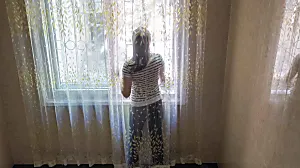

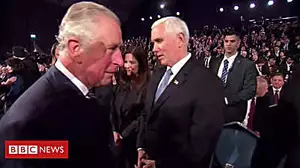
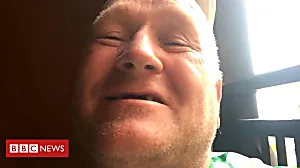

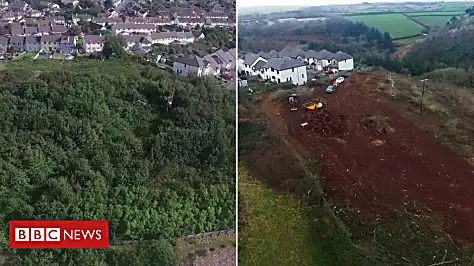
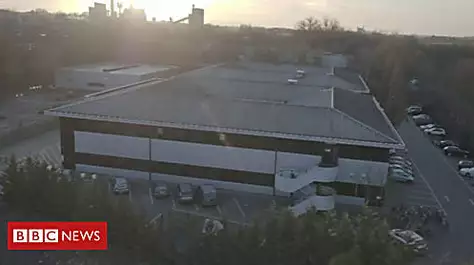
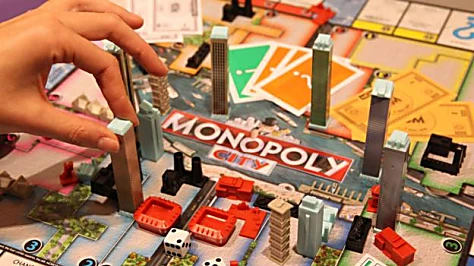
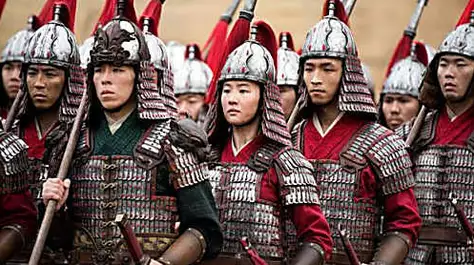






No comments:
Post a Comment